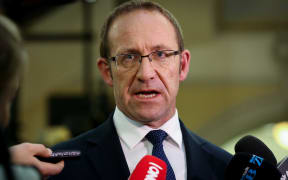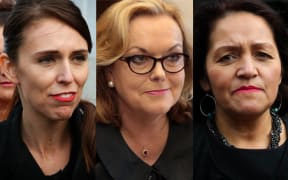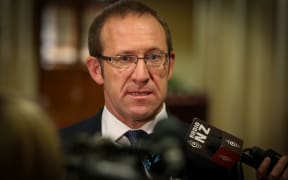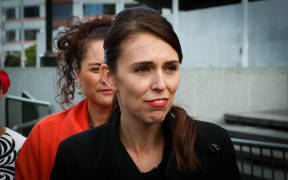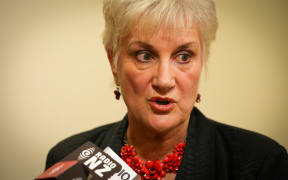Power Play - The Labour Party meets in Palmerston North this weekend for the first time since its 2014 election loss and under the new leadership of Andrew Little.
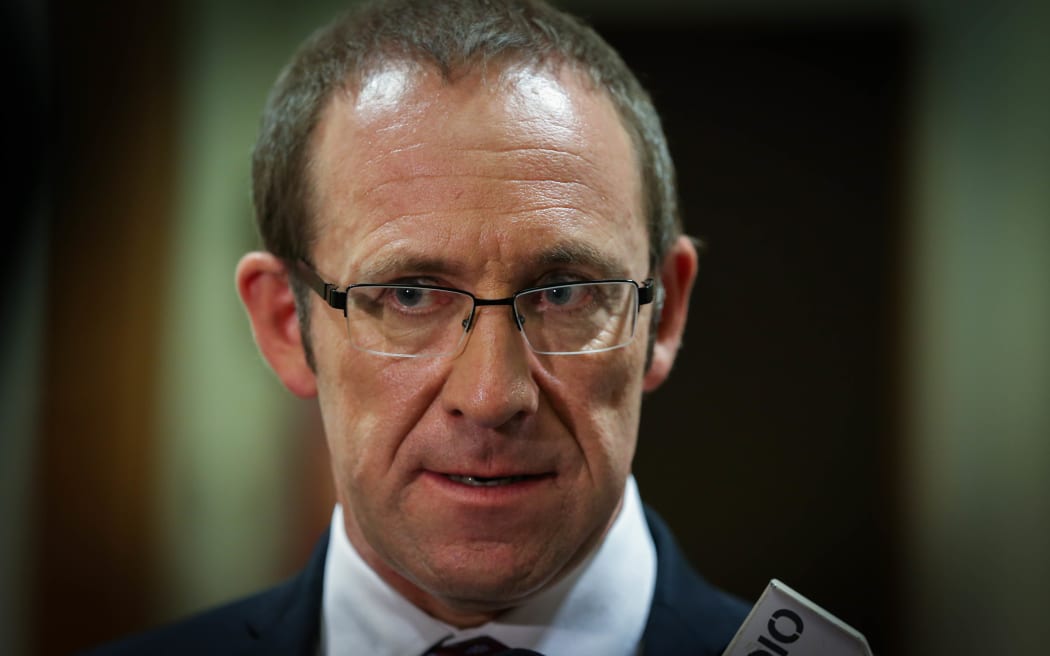
Labour leader Andrew Little Photo: RNZ / Alexander Robertson
On the surface, the Labour ship appears to be sailing relatively smoothly, but it is a crucial time for the party to convince a broad voter base it is ready and able to form a government.
Mr Little has lifted the party's level of public support back up into the low 30s, compared with the disastrous 25 percent result Labour suffered at last year's election under his predecessor David Cunliffe.
He has managed to settle down the open warring among the party factions in the wake of successive leaders and the election result, though part of that is also the recognition from MPs that a divided caucus will never win public confidence.
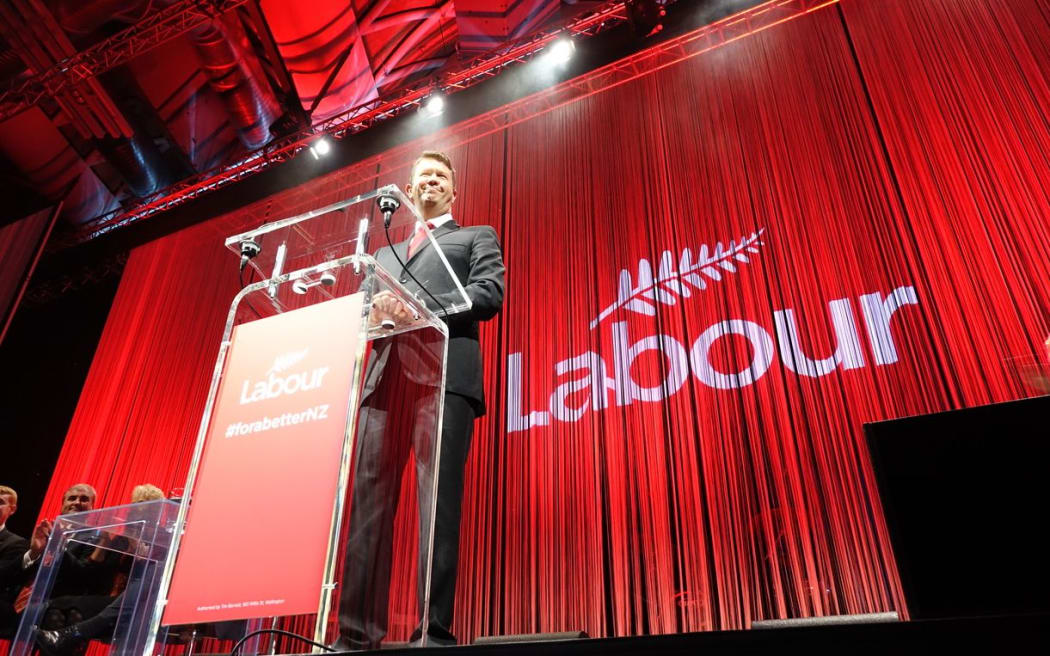
David Cunliffe speaking to party supporters at Labour's 2014 election campaign launch in Auckland. Photo: RNZ / Kim Baker Wilson
Confirming the experienced and well respected Annette King as deputy was a nod to the need for discipline and that stability is critical for Labour as it prepares for the 2017 election.
It also allows Mr Little to perform as leader without an ambitious deputy nipping at his heels.
There is a sense of unity among the caucus, compared with the turmoil of the last few years, and MPs said that could be attributed to Mr Little's leadership.
One MP said Mr Little was never going to be a "star that drags us to the top of the polls immediately", but the general view was that he had been clear about his expectations, and was providing a steady hand.
Party conference 'not about policy'
This party conference will not be about policy, with Labour asserting now was not the time in the electoral cycle to be rolling out new ideas.
They have had to take stock after the election defeat and adjust their attitudes, and eventually their policy platform, accordingly.
Mr Little was forced to clarify his position on superannuation after making comments about the fairness of people over 65 still working and receiving super earlier this year.
He had made it clear some polices, including the superannuation age of entitlement and the capital gains tax, that were not warmly received by voters are likely to be changed.
The capital gains tax policy may survive, in some form, within a broader taxation policy, but is unlikely to remain on the party manifesto as a stand-alone policy for 2017.
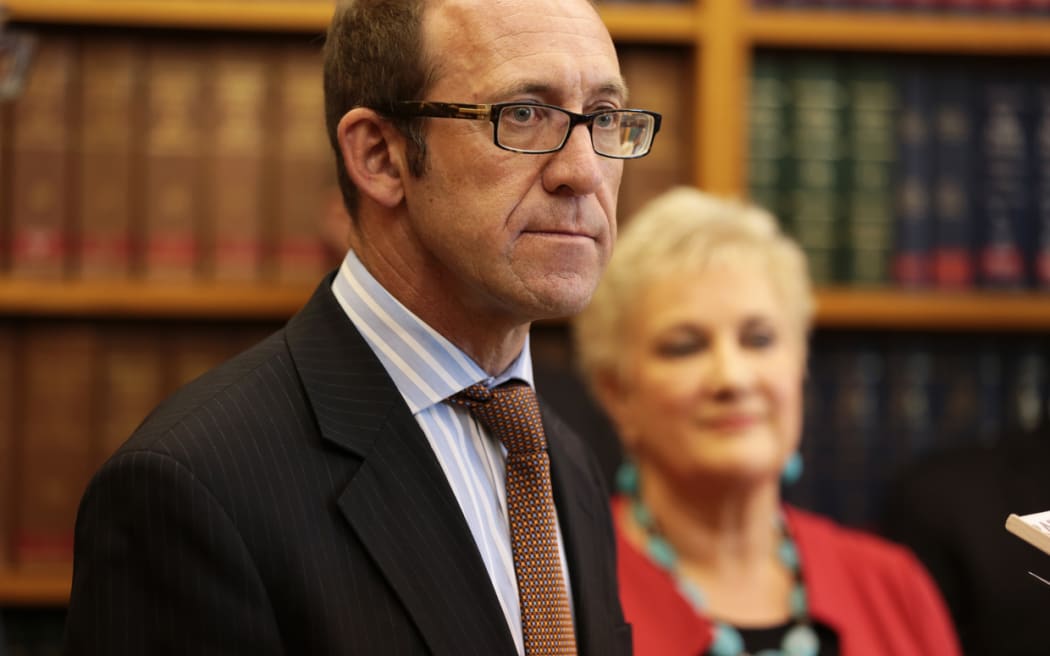
Mr Little with his confirmed deputy, Annette King Photo: RNZ / Diego Opatowski
This conference will be much more focused on Mr Little's brand as leader, and to take the opportunity to talk up what he has done, and what he intends to do.
Jobs and the economy will also feature, with the back-drop of the unemployment rate rising to 6 percent in the week leading up to the conference.
The relationship with the Greens is another issue that remains a subject of debate within the party.
Under the leadership of David Cunliffe, the relationship cooled significantly and there was an inconsistent message about how closely the two parties wanted to work together - from Labour's side, at least.
Some in Labour see the Greens as a hindrance for Labour, especially for voters in the centre ground currently dominated by the National Party, and believe Labour should strike out alone, and only do deals once the votes have been cast.
Others believe there is merit in letting the public know beforehand that there will be co-operation, and potentially shared government with the Greens, so they have a clear signal.
Behind the scenes, there are efforts to reconnect, with regular meetings between the two parties' chiefs of staff.
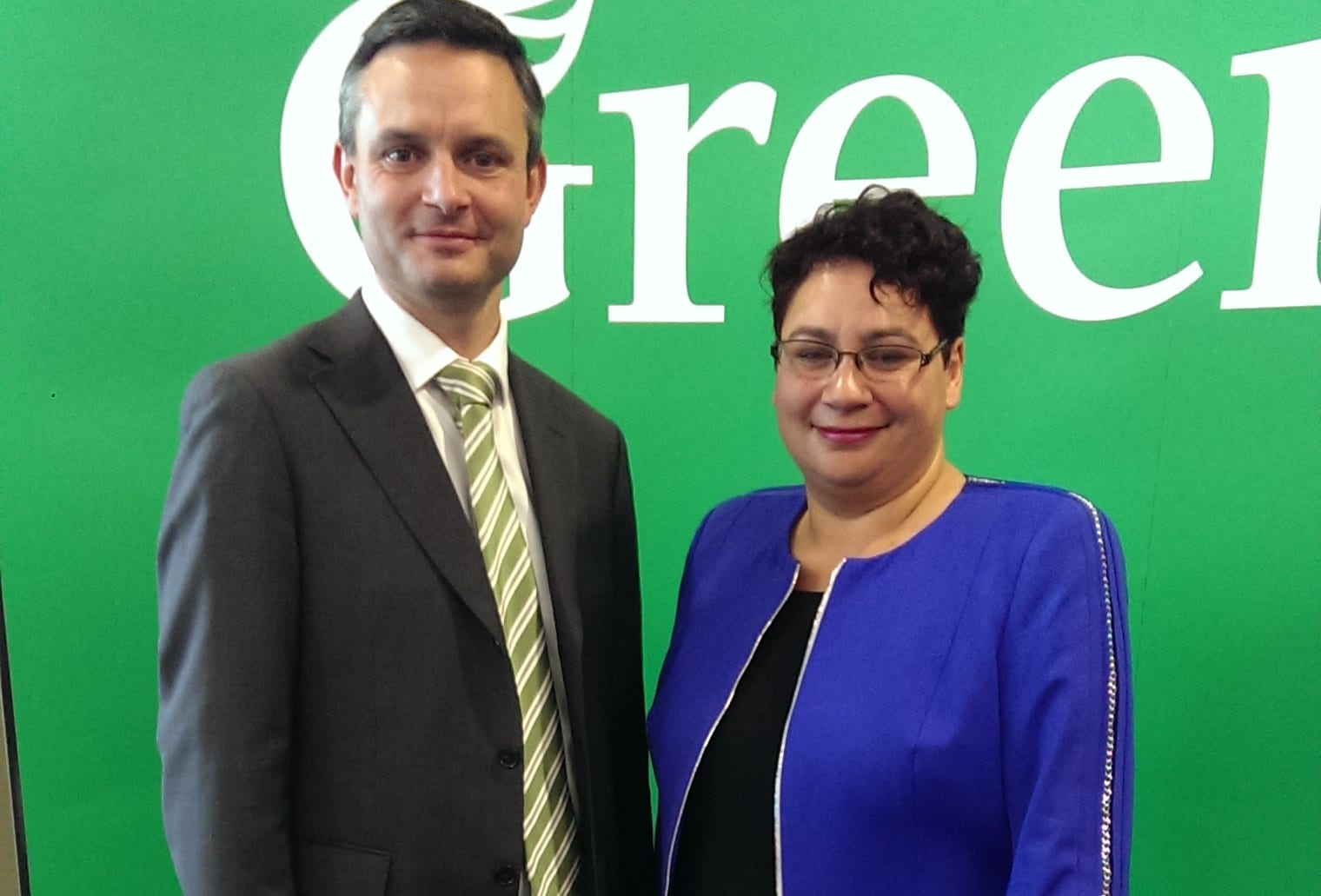
Green Party co-leaders James Shaw and Metiria Turei Photo: RNZ / Demelza Leslie
The Greens might also like to go further as 2015 approaches, and have open and public conversations about what a Green/Labour government might look like.
Labour also has to balance that against maintaining its relationship with Winston Peters and New Zealand First.
Long-serving MP, and former party leader, Phil Goff, will confirm his intention to run for the Auckland mayoralty at the end of the month, and a reshuffle will be held soon after.
Up-and-comers include Kelvin Davis, David Clark, Jacinda Ardern, Peeni Henare and Jenny Salesa.
On the flipside, there are some MPs who are considering their future and the reshuffle is likely to give them a clear signal about their prospects within the party.
As one MP notes, however, the party is not too concerned at this stage with rejuvenation - if it lifts its performance at the next election, that naturally delivers new MPs, and there is always natural attrition in the years between elections.
While Labour is now polling in the low 30s, it has struggled to rise any higher, except for a few bumps when it was running hard on the issue of foreign buyers in the residential house market.
Slow and steady is all very well, but the pressure is on Mr Little to lift the party to a point it can realistically take on the National Party without an over-reliance on another party.

